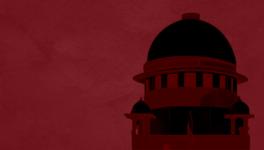Strength of Democracy Lies in its Institutions
THE Mumbai School of Economics Alumni Association celebrated its centenary year by organising a Special Centenary Address on ‘India’s 75th Year of Independence – Daunting Challenges Ahead’. The address was delivered by Dr Madhav Godbole, with Dr S.A. Dave (Founder Chairperson, Securities and Exchange Board of India and later UTI Mutual Fund) as Chairperson on March 26. The Leaflet reproduces Dr Godbole’s lecture in three parts. We are grateful to Prof. Ritu Dewan, President and Dr Chandrahas Despande, Vice-President of the Mumbai School of Economics Alumni Association for agreeing to The Leaflet’s reproducing Dr Godbole’s address.
This is the third part. Click here to view the first part, and here to view the second part.
There was a time when the Election Commission of India [ECI] enjoyed the highest public esteem and credibility. This image has been somewhat dented in recent years by the ECI turning a blind eye to the transgressions of the model code of conduct, by the ruling party, BJP [Bharatiya Janta Party], at the centre. The same is true of the National Human Rights Commission [NHRC], which took a principled stand after the Godhra riots and requested that it be impleaded in an on-going Supreme Court case to present the true picture before the court. Over the years, the image and the impact of the NHRC too has also gone down.
The Directive Principles of State Policy have been totally neglected over the years. This was more so after the adoption of economic liberalisation and globalisation policies from 1991.
A superficial look shows that there is a surfeit of institutions to oversee India’s democratic functioning. But this is an optical illusion. No doubt the shells of the institutions are there but either the institutions are non-functional with posts of chairman/members lying vacant, or have failed to make any visible impact. To name a few, they include the Minorities Commissions at the Centre and the states (Arif Mohammad Khan, Governor of Kerala, has proposed that there should be no minorities’ commissions and the interests of minorities should be looked after by the National Human Rights Commission. I do not agree. The interests of minorities need to be safeguarded by their separate commissions.), Information Commissions at the Centre and the states, Lok Pal at the Centre and the Lok Ayuktas in the states (with some large states even failing to establish these institutions), Human Rights Commissions at the Centre and some states, public grievances committees established by the police departments in the states, Inter-State Council [ISC] established under Article 263 of the Constitution, and so on. As for the ISC, since the Congress party did not believe in establishing this institution, it was set up 40 years after the adoption of the Constitution, in 1990, by the V. P. Singh government. But even thereafter, the UPA [United Progressive Alliance], which was in power for ten years from 2004 to 2014, did not call a single meeting of the ISC. It is high time the working of these institutions is examined closely to assess their work. The following guidelines need to be accepted nationally:
- I)To ensure their independence and autonomy.
- II)The chairman and members must be selected by a committee which will comprise, apart from the government, a judge of the high court/Supreme Court; leaders of Opposition in legislature/Parliament, and one or two independent, non-political persons of integrity and public repute.
- Timely action should be taken to fill up the posts so as to ensure that they do not lie vacant.
- The chairman and the members should not be eligible for reappointment for a fresh term.
- The annual reports, along with the action-taken reports, be placed before legislature/Parliament soon after they are received; and
- Wide publicity be given to these reports in the print and electronic media.
Also read: Indian Democracy is only as strong as its institutions
Increasing divide between the rich and the poor
The Directive Principles of State Policy cast a responsibility on the state to address the inequalities of income and wealth. Article 38(2) of the Constitution lays down that “the State shall, in particular, strive to minimise the inequalities in income, and endeavour to eliminate the inequalities in status, facilities and opportunities, not only among the individuals but also amongst groups of people residing in different areas or engaged in different vocations.” Article 39(c) of the Constitution directs the State to ensure “that the operation of the economic system does not result in the concentration of wealth and means of production to the common detriment”.
In spite of demands by some members, the Constituent Assembly had not agreed to use the word ‘socialist’ to describe the Constitution. But, the Preamble of the Constitution was amended, with great fanfare, during the Emergency by Indira Gandhi, by the Constitution (Forty-second Amendment) Act, 1976 to include, inter alia, the word ‘socialist’, in the opening sentence. As experience has shown, this has been pure window-dressing. The Directive Principles of State Policy, referred to above, have been totally neglected over the years. This was more so after the adoption of economic liberalisation and globalisation policies from 1991.
As Jayati Ghosh has brought out, the latest World Inequality Report 2022 is an eye-opener. “India is now one of the most unequal countries for both income and wealth inequality — and has shown the most rapid increases in inequality. This emerges clearly even though, as the report laments, ‘Over the past three years, the quality of inequality data released by the government has seriously deteriorated, making it particularly difficult to assess recent inequality changes.’” (The Wire, 20 January 2022)
The Global Hunger Index 2022 ranked India at the 101st position out of a total of 116 countries. India is also among the 31 countries where hunger has been identified as serious. India ranked 94 among 107 countries in the Global Hunger Index (GHI) released last year. Only 15 countries fare worse than India. These include Papua New Guinea (102), Afghanistan (103), Nigeria (103), Congo (105), Mozambique (106), Sierra Leone (106), Timor-Leste (108), Haiti (109), Liberia (110), Madagascar (111), Democratic Republic of Congo (112), Chad (113), Central African Republic (114), Yemen (115) and Somalia (116). India was also behind most of the neighbouring countries. Pakistan was ranked 92, with Nepal and Bangladesh tied at 76.To give just one example, Automobili Lamborghini reports its best-ever sales performance in India in 2021, a growth of 86 per cent over the previous year. The company sells super luxury cars with prices starting at Rs 3.16 crore in India. In the same period, 4.6 crore Indians slipped into extreme poverty.
Rather than keeping the pretence of India being a socialist country, it will be best to amend the Preamble of the Constitution to delete the word ‘Socialist’.
Also read: Union budget 2022-23: which of the inequalities will it impact?
Quasi-federal structure under increasing stress
Increasing strains are evident in Union-state relations. In the political rhetoric on federalism, it is often forgotten that India is not a federation but a union of states. As the very title of my latest book — ‘India-A Federal Union of States: Fault Lines, Challenges and Opportunities’ – brings out, India is a Union of states with distinct federal characteristics. I have identified 15 fault lines which are of particular concern. These include Union-state relations, need for review of the division of responsibilities between the Union and the states given in the Seventh Schedule of the Constitution, increasingly strident sub-nationalism, the Frankenstein of state domicile which is adversely affecting the fundamental rights of citizens expounded in Article 15 (prohibition of discrimination on grounds of religion, race, caste, sex or place of birth) and Article 16 (equality of opportunity in matters of public employment) of the Constitution, the forthcoming delimitation of Constituencies after the Census of 1921 due to serious concerns regarding the resultant serious regional imbalances between the southern and northern states on account of the large variation in the rate of growth of the population. According to one estimate, of the total of 888 seats in the Lok Sabha, UP will have 145 seats, Bihar 75, Karnataka 45, and all Southern states together will have 179 seats or just 20 per cent of the total. This will pose an existential challenge to India’s quasi-federalism. And finally, the urgency of establishing a Constitutional division of the Supreme Court for speedy disposal of constitutional cases.
The term ‘good governance’ does not find a mention in the Constitution as it was not a part of the common terminology at the time when the Constitution was written. However, even a cursory reading of the Constitution and particularly its chapters on Fundamental Rights and the Directive Principles of State Policy make it abundantly clear that the Constitution-makers had in mind good governance as the objective.
Declare good governance a fundamental right
My colleague Dr. E.A.S Sarma and I had filed a public interest litigation at the Supreme Court in 2004 with a plea that good governance should be recognised as a fundamental right. The term ‘good governance’ does not find a mention in the Constitution as it was not a part of the common terminology at the time when the Constitution was written. However, even a cursory reading of the Constitution and particularly its chapters on Fundamental Rights and the Directive Principles of State Policy make it abundantly clear that the Constitution-makers had in mind good governance as the objective. The National Commission to Review the Working of the Constitution, under the chairmanship of Justice M. N. Venkatachaliah, has in its report (2002) highlighted that the Supreme Court has recognised a number of fundamental rights such as right to privacy, right to information, right to freedom of press, right to speedy justice, right to pollution-free air, etc. though they are not explicitly stated as such in the Constitution. Sarma and I had urged that, on the same basis, Supreme Court should declare good governance as a fundamental right which will help bring about major structural and institutional changes in the governance of the country. We had underlined the importance of introducing meritocracy in the higher civil services and had suggested several measures for the purpose. But, sadly the Supreme Court did not entertain our plea. Obviously, we were ahead of our times! It is imperative that pressure of public opinion is built up to get good governance accepted as a fundamental right in the Constitution.
Also read: COVID-19 – Lessons In Constitution And Governance
Eternal vigilance is the price of democracy
This age-old cliché still holds true. A large, multi-lingual, multi-religious, multi-ethnic, plural society like India is bound to face new challenges from time to time. But, India has still not been able to find solutions to most of the above problems which have persisted since a long time. As seen from the programmes, pronouncements and election manifestoes of political parties, none of these concerns are on their radar. Answers to these complex problems can be found only with statesmanship and vision. Clearly, the political parties, bureaucracy, civil society, media, the opinion-makers and the thought-leaders have let down the country by not insisting on these institutional, systemic, constitutional and legal changes to equip India to deal with these daunting challenges. How long should India continue to be in such a predicament?
Dr. Madhav Godbole is a former Home Secretary and Secretary, Justice, Government of India.
Get the latest reports & analysis with people's perspective on Protests, movements & deep analytical videos, discussions of the current affairs in your Telegram app. Subscribe to NewsClick's Telegram channel & get Real-Time updates on stories, as they get published on our website.
























